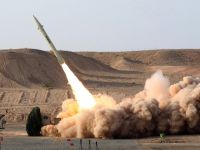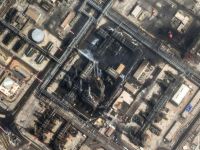Kassem Hejeij, charged by the U.S. Treasury with direct links to Hezbollah, officially resigned as head of the Middle East Africa Bank, as Central Bank Governor Riad Salameh assured that this case would have no impact on the Lebanese banking sector.
In a memo issued by the bank, the head of the financial market at MEAB Amal Saleh said that Kassem Hejeij had submitted his resignation and handed over his responsibility to his son, Ali Hejeij.
“From now on, Kassem Hejeij has no more relations with the bank or ownership,” the memo said.
Hejeij is one of three Shiite businessmen and investors who were accused by the U.S. Treasury of direct links with Hezbollah, which is branded as a terrorist organization by Washington.
The memo stressed that the bank would fully comply with all measures pertaining to money laundering and terrorism financing, including those adopted by the U.S. Federal Reserve. It reiterated that the bank has no relations with any prohibited group or organization.
Salameh told a TV station that this case would have no impact on the Lebanese banking sector, noting that MEAB is financially sound and has not committed any violations.
The governor added that there had been no withdrawals of deposits from the bank despite the damaging report on its chairman.
The U.S. Treasury did not name the bank in its sanctions designation and made no hint that it should be closed by Lebanese financial authorities. But some bankers believe that Kassem Hejeij would have eventually been forced to sell the bank as a precautionary measure.
Some say the appointment of his son as a chairman of the bank will not change the position of the U.S. Treasury. But liquidating the bank is not expected to happen anytime soon because most banks in Lebanon are not too keen to buy the assets of MEAB.
“So far we did not receive any offer to buy the bank but the management will consider any offer if the price is right,” one of Hejeij’s lawyers told The Daily Star.
There is concern among Shiite financial circles that prominent Shiite bankers and businessmen may be targeted by U.S. authorities in the future.
“It seems that Washington wants to tighten the financial noose on Hezbollah and monitor every transaction the party may make through any bank or financial institution,” a banker told the paper.
He said Iran still bankrolls most of Hezbollah’s operations, although the party does receive large donations from certain other quarters, adding that banks would block and freeze any account if the name of the holder is blacklisted by the Americans or Europeans.








